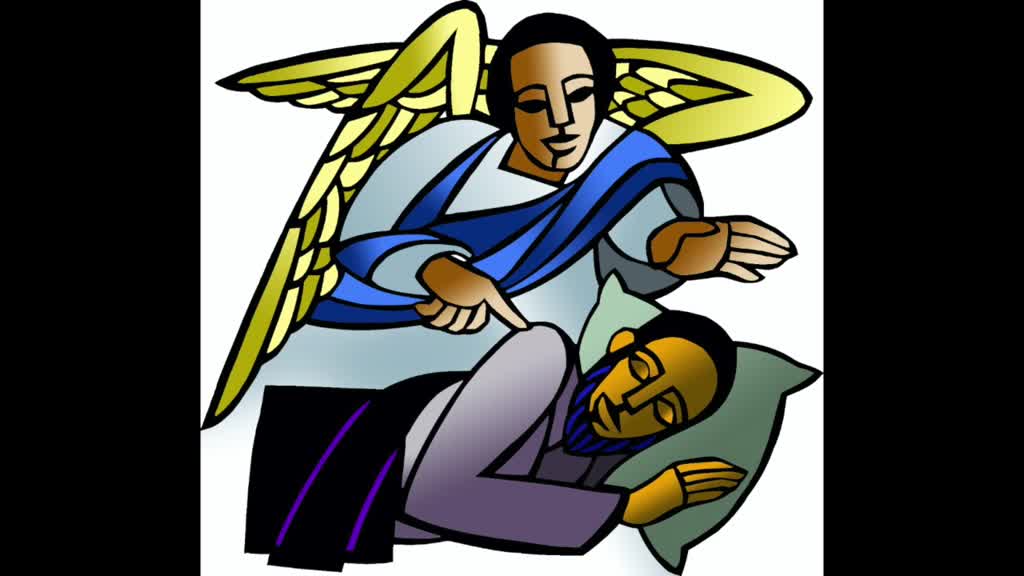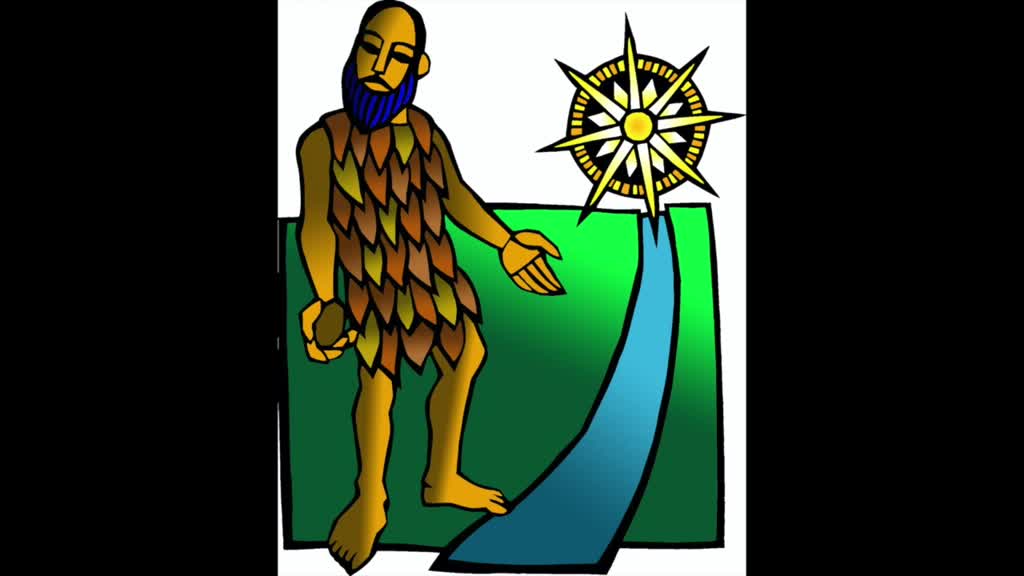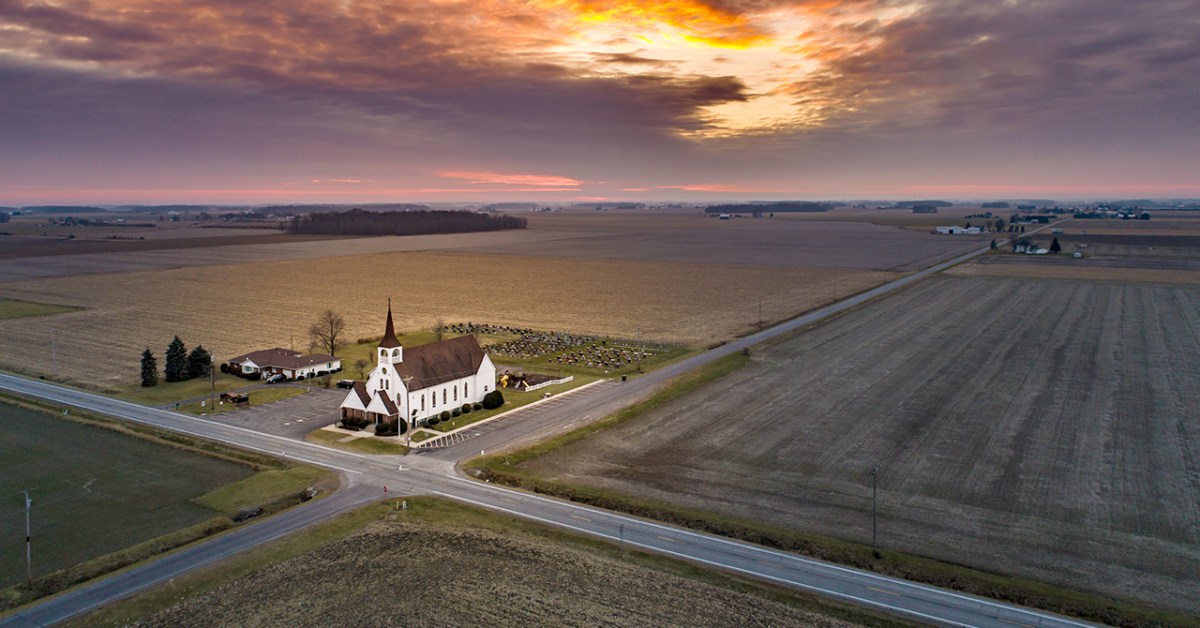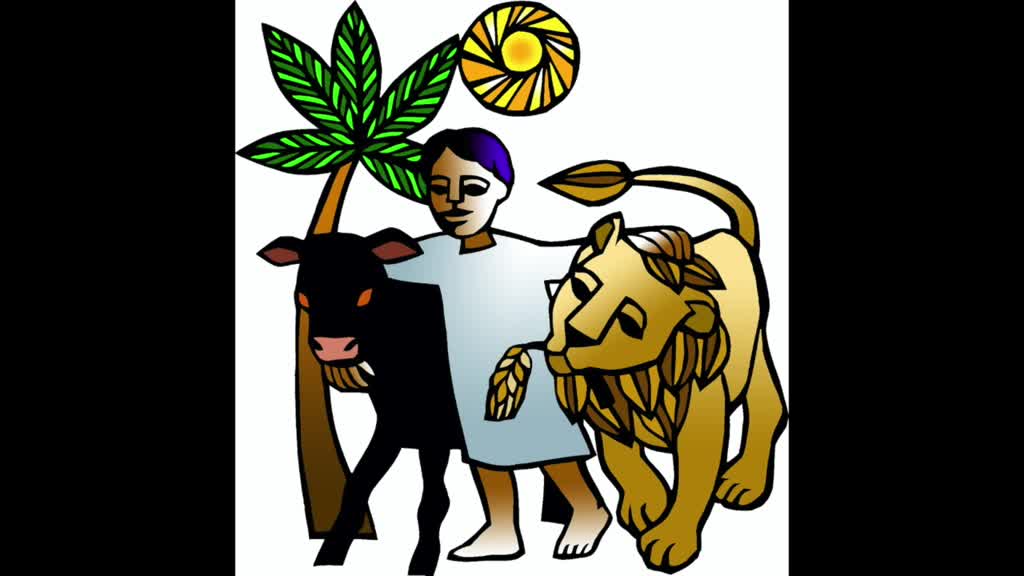Christ Church Episcopal
Church • Exeter, NH • 126 members • 14 followers
Groups
News
Sort by
newest
 Conversation With The Rev. Dr. Guy Collins, Author of The Goldilocks God: Searching for the via media Tuesday, May 16 at 7p.m. Online Hosted by the Red Church Door Podcast and SpiritBound Digital Mission Can Christianity be intellectually credible? Why do our past failures and breakages offer comfort and hope? How does the via media of Anglicanism offer tactics for dealing with contemporary challenges and uncertainties? These are the essential questions Collins addresses in his book as he "explores the fertile middle ground between toxic Christianity and militant atheism." Join the conversation hosted by the Red Church Door Podcast and SpiritBound Digital Mission. Let me know if you are interested in joining this Podcast.
Conversation With The Rev. Dr. Guy Collins, Author of The Goldilocks God: Searching for the via media Tuesday, May 16 at 7p.m. Online Hosted by the Red Church Door Podcast and SpiritBound Digital Mission Can Christianity be intellectually credible? Why do our past failures and breakages offer comfort and hope? How does the via media of Anglicanism offer tactics for dealing with contemporary challenges and uncertainties? These are the essential questions Collins addresses in his book as he "explores the fertile middle ground between toxic Christianity and militant atheism." Join the conversation hosted by the Red Church Door Podcast and SpiritBound Digital Mission. Let me know if you are interested in joining this Podcast.- Mark, This seems very intriguing to me; please allow me to join the podcast on the 16th. Thank you, Alan Rollins alan.rollins56@gmail.com
- Hi Mark, I would be interested in joining the Podcast Thanks, Morgan
 Life would be easier, convenient, and sometimes more fun if we didn’t have to contend with this God thing. But we would be vastly poorer for it. Life in union with God has the power to fill us with faith, love, and meaning. In a world where so much seems meaningless, life in union with God is good news indeed. Br. James Koester, SSJE
Life would be easier, convenient, and sometimes more fun if we didn’t have to contend with this God thing. But we would be vastly poorer for it. Life in union with God has the power to fill us with faith, love, and meaning. In a world where so much seems meaningless, life in union with God is good news indeed. Br. James Koester, SSJE- The brothers of SSJE write very thought-inspiring essays.
- I’ve been reading their Cowley magazine issue about The Lord’s Prayer. A way of thinking about each phrase in that prayer, instead of just praying it in a rote manner.
 Christmas Eve Sermon 2022 The Rev. Mark Pendleton Christ Church, Exeter The Nativity Story Looks Back at Us As a gray-haired preacher, people have been known to ask me if I go to my file of past sermons and preach them again -- take them out for another spin, so to speak. As much as the idea of “re-gifting” my sermons might make for a more relaxing Saturday night, I must say that I rarely do. I have 30 years of Christmas sermons to browse, but as I look back over them what I realize is that I am not the same person I was when I preached them. As life has moved forward and the world has changed, so too have I. In so many ways, I don’t think the same as I did. As the earliest believers of Jesus were called followers of the Way before they were called Christians, I like to think that we all are finding our way through life -- being moved and changed by what we see and experience. What have I learned and seen? The years have taught me a few more things about human behavior so I shouldn’t be so surprised when people – you and me – act the way we do. I have grown a bit more capacity to learn from setbacks and disappointments. Time can invite us all to tend to the relationships that matter most. When the dust settles in moments of confusion and trial, the values that are most important to us – family, friends, faith -- find a way to become clearer and more present. So, on a night such as tonight, I like to take it all in. Past memories and traditions of Christmas. Today’s reality and challenges. And the hope for what is still to come. We are here. Together. We’ve seen a lot, endured much, lost, and loved and yet we are drawn to gather again to sing carols, light candles and pray that that joy and hope can crowd out any darkness, conflict, despair, and fear. We fill this space with light in the darkest time of the year. And we hear again: The angel said to Mary and Joseph, "Do not be afraid; for see - I am bringing you good news of great joy for all the people: to you is born this day in the city of David a Savior, who is the Messiah, the Lord. What I have discovered in my dusty sermon file, is that I’ve probably looked at the story of the birth of Jesus from every angle and frame possible. From the surprising and unlikely birth announcements to both Mary and Joseph, to their journey to Bethlehem and the meaning of that town for Israel, to their fleeing for safely in Egypt in the months after Jesus’ birth. I have taken on the view and voice of the angels, the shepherds, the innkeeper, the star, the Magi, the villain King Herod – even the animals in the manger. I suppose that there is nothing wrong with that approach to this familiar and foundational story, but maybe I spent too much time looking at the nativity story without pausing to wonder how the story looks back at my own life – at all of our lives. What does the birth of Jesus, of God becoming one of us, say about you and me? When and where in our own lives have we heard something totally unexpected that challenged us to our core? That we first couldn’t or didn’t want to accept to be true. In an instant, life as we know it can go in different directions based on the decisions we make. It turns out that life does present forks in the road and moments of decision. When and if unsettling news comes our way, after the shock, doubt and uncertainty that might follow, what do we do? This or that may not be how we imagined our life to be. Mary and Joseph can look back at our lives as we look at theirs. What did they do? They both remained open to the sound and voice of God and believed. They found a way to move forward into the next day – they held onto their faith and did not lose their way. Joseph also went from the town of Nazareth in Galilee to Judea, to the city of David called Bethlehem, because he was descended from the house and family of David. Some of the greatest learning and growth in our lives can come from the journeys we make and the distance we create from what is familiar and known. New places, distant lands, different people challenge us in good ways. We venture out from the known and comfortable, we might even meet people along the way. In that region there were shepherds living in the fields, keeping watch over their flock by night. I believe there are people in our lives who somehow keep watch over us. Maybe on this holy night we might dare to call them angels. They find a way to be there and show up when we need them most. They call out of the blue. They find a way to say what we most need to hear or just speak through their presence. The shepherds said to one another, "Let us go now to Bethlehem and see this thing that has taken place, which the Lord has made known to us." So they went with haste and found Mary and Joseph, and the child lying in the manger. Tonight, is a good night to remember and lift up in our hearts the names of those in heaven and those with us still who fill the mangers and rooms of our lives when we need them most and new things are happening. I always love that last scene in the movie The Wizard of Oz when Dorothy wakes up in bed from this amazing dream surrounded by loved ones. What did she say about his journey to Oz: “And I tried to get back for days and days… bit it wasn't a dream. It was a place. And you, and you, and you… and you were there. And I remember that some of it wasn't very nice. But most of it was beautiful.” Dorothy had a pretty good take on Oz and our world today: some of isn’t very nice but most of it is beautiful. I was in a clergy group years ago when the leader posed a question to us. He asked us this: what do we think would happen if all of the Bibles on earth vanished in an instant? Vaporized, deleted, fell into piles of dust. We sat with this question for some time, long enough for the leader to offer up what he thought. He said: I think if all of the Bibles disappeared, and there was no recorded history of Israel, the Prophets, Jesus, Mary, Paul, the early church, that people would find a way to write and create a new Bible all over again. Because the story has to be told and be reborn in every generation to keep it and us alive. The story we retell on this night has a way of looking back at us. It keeps us alive. We are invited to believe again. In hope. In love. In service and sacrifice, generosity and compassion, justice, and mercy. In God at the heart of it all.
Christmas Eve Sermon 2022 The Rev. Mark Pendleton Christ Church, Exeter The Nativity Story Looks Back at Us As a gray-haired preacher, people have been known to ask me if I go to my file of past sermons and preach them again -- take them out for another spin, so to speak. As much as the idea of “re-gifting” my sermons might make for a more relaxing Saturday night, I must say that I rarely do. I have 30 years of Christmas sermons to browse, but as I look back over them what I realize is that I am not the same person I was when I preached them. As life has moved forward and the world has changed, so too have I. In so many ways, I don’t think the same as I did. As the earliest believers of Jesus were called followers of the Way before they were called Christians, I like to think that we all are finding our way through life -- being moved and changed by what we see and experience. What have I learned and seen? The years have taught me a few more things about human behavior so I shouldn’t be so surprised when people – you and me – act the way we do. I have grown a bit more capacity to learn from setbacks and disappointments. Time can invite us all to tend to the relationships that matter most. When the dust settles in moments of confusion and trial, the values that are most important to us – family, friends, faith -- find a way to become clearer and more present. So, on a night such as tonight, I like to take it all in. Past memories and traditions of Christmas. Today’s reality and challenges. And the hope for what is still to come. We are here. Together. We’ve seen a lot, endured much, lost, and loved and yet we are drawn to gather again to sing carols, light candles and pray that that joy and hope can crowd out any darkness, conflict, despair, and fear. We fill this space with light in the darkest time of the year. And we hear again: The angel said to Mary and Joseph, "Do not be afraid; for see - I am bringing you good news of great joy for all the people: to you is born this day in the city of David a Savior, who is the Messiah, the Lord. What I have discovered in my dusty sermon file, is that I’ve probably looked at the story of the birth of Jesus from every angle and frame possible. From the surprising and unlikely birth announcements to both Mary and Joseph, to their journey to Bethlehem and the meaning of that town for Israel, to their fleeing for safely in Egypt in the months after Jesus’ birth. I have taken on the view and voice of the angels, the shepherds, the innkeeper, the star, the Magi, the villain King Herod – even the animals in the manger. I suppose that there is nothing wrong with that approach to this familiar and foundational story, but maybe I spent too much time looking at the nativity story without pausing to wonder how the story looks back at my own life – at all of our lives. What does the birth of Jesus, of God becoming one of us, say about you and me? When and where in our own lives have we heard something totally unexpected that challenged us to our core? That we first couldn’t or didn’t want to accept to be true. In an instant, life as we know it can go in different directions based on the decisions we make. It turns out that life does present forks in the road and moments of decision. When and if unsettling news comes our way, after the shock, doubt and uncertainty that might follow, what do we do? This or that may not be how we imagined our life to be. Mary and Joseph can look back at our lives as we look at theirs. What did they do? They both remained open to the sound and voice of God and believed. They found a way to move forward into the next day – they held onto their faith and did not lose their way. Joseph also went from the town of Nazareth in Galilee to Judea, to the city of David called Bethlehem, because he was descended from the house and family of David. Some of the greatest learning and growth in our lives can come from the journeys we make and the distance we create from what is familiar and known. New places, distant lands, different people challenge us in good ways. We venture out from the known and comfortable, we might even meet people along the way. In that region there were shepherds living in the fields, keeping watch over their flock by night. I believe there are people in our lives who somehow keep watch over us. Maybe on this holy night we might dare to call them angels. They find a way to be there and show up when we need them most. They call out of the blue. They find a way to say what we most need to hear or just speak through their presence. The shepherds said to one another, "Let us go now to Bethlehem and see this thing that has taken place, which the Lord has made known to us." So they went with haste and found Mary and Joseph, and the child lying in the manger. Tonight, is a good night to remember and lift up in our hearts the names of those in heaven and those with us still who fill the mangers and rooms of our lives when we need them most and new things are happening. I always love that last scene in the movie The Wizard of Oz when Dorothy wakes up in bed from this amazing dream surrounded by loved ones. What did she say about his journey to Oz: “And I tried to get back for days and days… bit it wasn't a dream. It was a place. And you, and you, and you… and you were there. And I remember that some of it wasn't very nice. But most of it was beautiful.” Dorothy had a pretty good take on Oz and our world today: some of isn’t very nice but most of it is beautiful. I was in a clergy group years ago when the leader posed a question to us. He asked us this: what do we think would happen if all of the Bibles on earth vanished in an instant? Vaporized, deleted, fell into piles of dust. We sat with this question for some time, long enough for the leader to offer up what he thought. He said: I think if all of the Bibles disappeared, and there was no recorded history of Israel, the Prophets, Jesus, Mary, Paul, the early church, that people would find a way to write and create a new Bible all over again. Because the story has to be told and be reborn in every generation to keep it and us alive. The story we retell on this night has a way of looking back at us. It keeps us alive. We are invited to believe again. In hope. In love. In service and sacrifice, generosity and compassion, justice, and mercy. In God at the heart of it all.- This is wonderful. I’m sorry I missed it in person. Merry Christmas.
- I, too, am sorry that we had to miss it in person. It is indeed an important thing to reach out to those who are there for us and those who have been there for us. But much more important is the fact that our Savior’s story be told … again and again. All blessings!
- Yes, Dorothy summed up the world we live in very well -- some of it isn’t very nice, but most of it is beautiful! Your last paragraph hits all of the key notes of our beliefs so well! Merry Christmas!
 Our mother church, the Church of England, received some sobering numbers about their membership. The U.S. is probably a few decades away from Europe with trend lines. The proportion of people in England and Wales identifying as Christian has fallen below 50 per cent for the first time, according to census data. Some 46.2 per cent of the population described themselves as Christian on the day of the 2021 census, down from 59.3 per cent a decade earlier, the Office for National Statistics (ONS) said. This is the first time the proportion has dropped below half. The percentage of people saying they had no religion jumped from around a quarter in 2011 (25.2%) to over a third in 2021 (37.2%). In New Hamphire, Christians are 59%. Unaffiliated or “nones” are 36%. In Mississippi, Christians are 83% Unaffiliated 14%. We hear from time to time how secular our culture is and how less and less people are attending regular church services – especially in New England. Question: Does any of this matter? Do we care?
Our mother church, the Church of England, received some sobering numbers about their membership. The U.S. is probably a few decades away from Europe with trend lines. The proportion of people in England and Wales identifying as Christian has fallen below 50 per cent for the first time, according to census data. Some 46.2 per cent of the population described themselves as Christian on the day of the 2021 census, down from 59.3 per cent a decade earlier, the Office for National Statistics (ONS) said. This is the first time the proportion has dropped below half. The percentage of people saying they had no religion jumped from around a quarter in 2011 (25.2%) to over a third in 2021 (37.2%). In New Hamphire, Christians are 59%. Unaffiliated or “nones” are 36%. In Mississippi, Christians are 83% Unaffiliated 14%. We hear from time to time how secular our culture is and how less and less people are attending regular church services – especially in New England. Question: Does any of this matter? Do we care?- Pew Research Center released a report in Sept. 2022 (link below), Modeling the Future of Religion in America, on this subject of the decline in people who describe their religious identify as Christian. * In 2020, 64% of Americans were Christian, 30% were religious unaffiliated, and 6% were adherents of non-Christian religions (Jewish, Muslim, Hindu, Buddhist, etc.) * Pew’s projections for 2070 show Christians reducing to between 35% to 54%, those religiously unaffiliated increasing to between 34% to 52%, and non-Christian religions increasing to 13%-15%. * The increase in non-Christian religions is driven by migration patterns, not by people switching from Christian to non-Christian religions. * Pew notes that U.S. may be “following the path taken over the last 50 years by many countries in Western Europe that had overwhelming Christian majorities in the middle of the 20th century and no longer do… While the change in affiliation rates in the U.S. is largely due to people voluntarily leaving religion behind, switching is not the only driver of religious composition change worldwide. For example, differences in fertility rates explain most of the recent religious change in India, while migration has altered the religious composition of many European countries in the last century.” * Lastly, an instructive finding is that Pew estimates that in the U.S. “31% of people raised Christian become unaffiliated between ages 15 to 29, the tumultuous period in which religious switching is concentrated. An additional 7% of people raised Christian become unaffiliated later in life, after the age of 30.” This would suggest that outreach directed at teenagers and those in their twenties, if successful, could have the greatest impact on stemming the declines projected by Pew. https://www.pewresearch.org/religion/2022/09/13/modeling-the-future-of-religion-in-america/
- Randy and Tish,
- Thank you for this detail. Definitely working with teenagers and those in their early 20’s would be fruitful. Another possibility, based on my experience: reach out to those in their 60’s. I attended church - as my parents insisted - through high school. But when I went to college and moved away, I went to church only when visiting my parents. During my working life I had an occasional thought of going to church on some Sundays, but always felt that I had too much else that had to be done. But as I approached retirement, my husband and I said, “no more excuses” and we returned. So I wonder if reaching out to the almost- or just-retired might find returnees.
 To cultivate wisdom you need not read another book, nor watch another Ted talk, nor travel to the ends of the earth. Be where you are, which is where God is with you. Say “yes” to life on the terms that God is giving you life just now; pay attention to your life. (Br. Curtis Almquist, SSJE)
To cultivate wisdom you need not read another book, nor watch another Ted talk, nor travel to the ends of the earth. Be where you are, which is where God is with you. Say “yes” to life on the terms that God is giving you life just now; pay attention to your life. (Br. Curtis Almquist, SSJE)- Br. Curtis is a wonder. He breaks it down to the simplest concepts: God is right where you are and ready to show you the way through whatever it is.
- A few years ago SSJE offered a Lent series of daily reflections. I remember that all were worth reading and contemplating, and that I did appreciate what Br. Almquist wrote.




